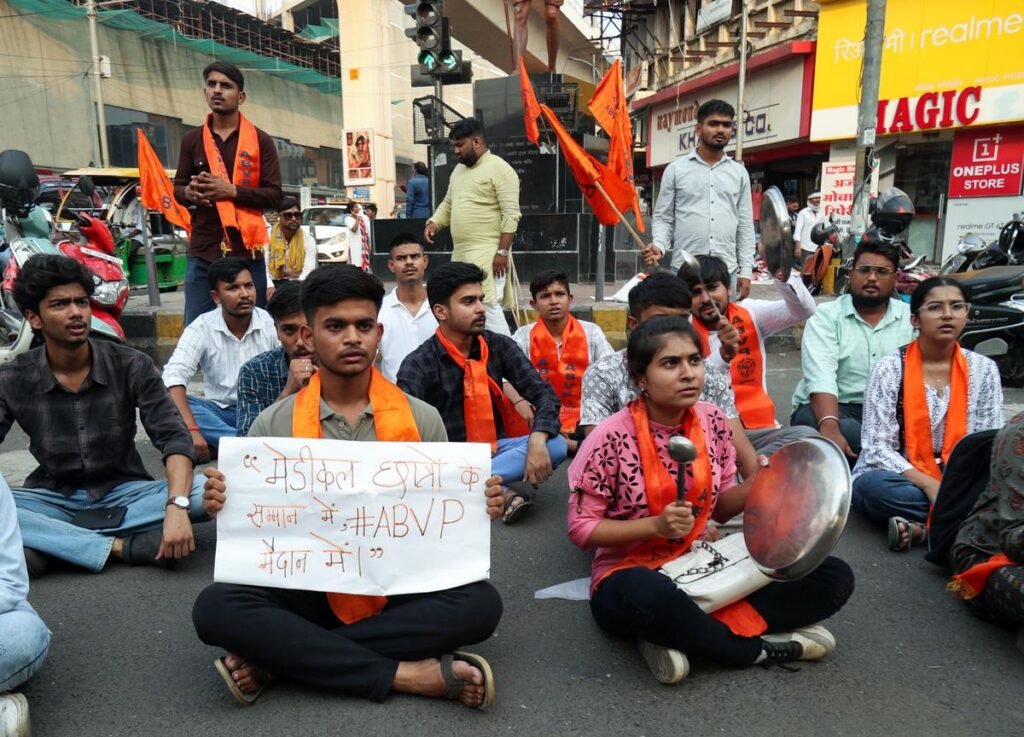
The Indian government has introduced a strong new law called the Public Examinations (Prevention of Unfair Means) Act, 2024 to stop paper leaks and cheating in national-level exams. This law came into effect on June 21, 2024, and was urgently brought in after major controversies involving NEET (National Eligibility cum Entrance Test) and NET (National Eligibility Test) paper leaks. These incidents affected the trust of millions of students and parents across India. The new law aims to bring fairness to the exam system and ensure that no one gets an unfair advantage through cheating or fraud.
India holds many competitive exams every year for college admissions and government jobs. Exams like NEET, JEE, NET, UPSC, and others see participation from lakhs of students. These students work hard for months and even years to prepare for these exams. However, in recent years, reports of paper leaks, fake exam centers, and cheating scams have increased. This not only causes stress among honest students but also damages the reputation of the education system. The recent NEET UG 2024 paper leak in Bihar and the cancellation of the NET 2024 exam due to security concerns created a national uproar. Students protested, demanding justice and accountability. In response, the government acted quickly and passed this powerful law to prevent such problems in the future.
One of the biggest highlights of this law is the strict punishment for those found guilty. Individuals who leak papers or help in cheating can face 3 to 10 years in jail, and fines up to ₹1 crore. This is much stricter than earlier laws, which had lighter punishments. If cheating or leaks are done by a group or a gang, it will be treated as organized crime. All members involved—whether they are from coaching centers, printing presses, or even exam officials—can be arrested and punished. Moreover, any property or money earned through these illegal actions can be taken away by the authorities.
The law also focuses on ensuring quick investigation and justice. Special units will be created to investigate exam-related fraud, and fast-track courts will handle these cases. This means that guilty people will be punished quickly, and honest students will not have to wait for years for justice. Importantly, the law also holds private agencies and government officials accountable. If an exam agency or staff is found to be careless or corrupt, they can also be punished under this law. This step is meant to increase responsibility among those who conduct and manage exams.
The law provides protection to whistleblowers—people who come forward to report cheating or paper leaks. Their names and identities will be kept secret to ensure their safety. This is an important move, as many people hesitate to report wrongdoing due to fear. With this law, the government wants to build a culture where people are encouraged to speak up without fear.
Union Education Minister Dharmendra Pradhan said the government is serious about protecting the future of students. He mentioned that this law is not against students but against those who commit fraud or help in cheating. The aim is to make exams free, fair, and transparent. The government believes that students who study honestly should never suffer because of a few cheaters. They also promised to investigate recent incidents and take action against those responsible.
The National Testing Agency (NTA), which conducts exams like NEET and JEE, is also under review. After the recent controversies, many people demanded reforms in how exams are conducted. The government may introduce changes in how NTA works and how it manages exam security. The goal is to improve the overall process and prevent future issues.
Students and parents across the country have largely welcomed the new law. Many students said that they were heartbroken when they heard about the NEET paper leak. They felt that their months of hard work were wasted. A NEET aspirant from Lucknow said she cried after hearing about the leak but now feels hopeful because the new law will punish the guilty. Parents also expressed relief, saying that their children’s future must be protected and that strong laws are needed to stop corruption in education.
Before this law, paper leak cases were handled under older state laws like the Maharashtra Public Exams Act or the Indian Penal Code (IPC). These laws were not strong enough to deal with today’s high-tech cheating and organized exam scams. The new law replaces all these with one strong and clear rule across India. It not only increases the punishment but also makes it easier for police and courts to act quickly. The government has also promised to take many practical steps to improve exam safety. This includes better security at exam centers, the use of CCTV cameras, biometric attendance, and tracking of question papers. Authorities will monitor coaching centers and printing presses more closely. They may also launch a helpline or app where students can report suspicious activities during exams.
Many countries already have strong systems to prevent exam cheating. For example, China has strict laws where students can be jailed for cheating. South Korea uses tight monitoring and trained invigilators, while the U.S. uses artificial intelligence to catch online cheating. India’s new law brings it closer to these global standards, showing that it takes education and fairness seriously.
Experts say that while the law is a big step forward, more reforms are still needed. They suggest reforms in the NTA, regular checks on exam-related agencies, strict rules for coaching institutes, and better use of digital technology. Also, exam staff should receive proper training so they can manage exam centers without errors or negligence.
The Public Examinations (Prevention of Unfair Means) Act, 2024 is a bold and much-needed law. It sends a clear message to cheaters and fraudsters that the Indian government will not tolerate any attempts to play with the future of its youth. It is a law that stands for fairness, justice, and the protection of honest students. With proper implementation, it


































